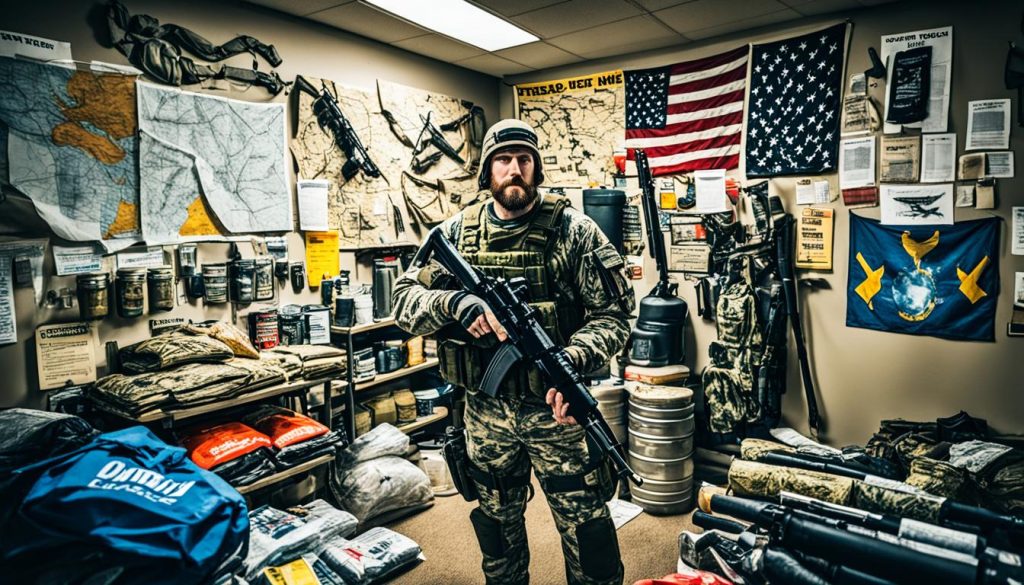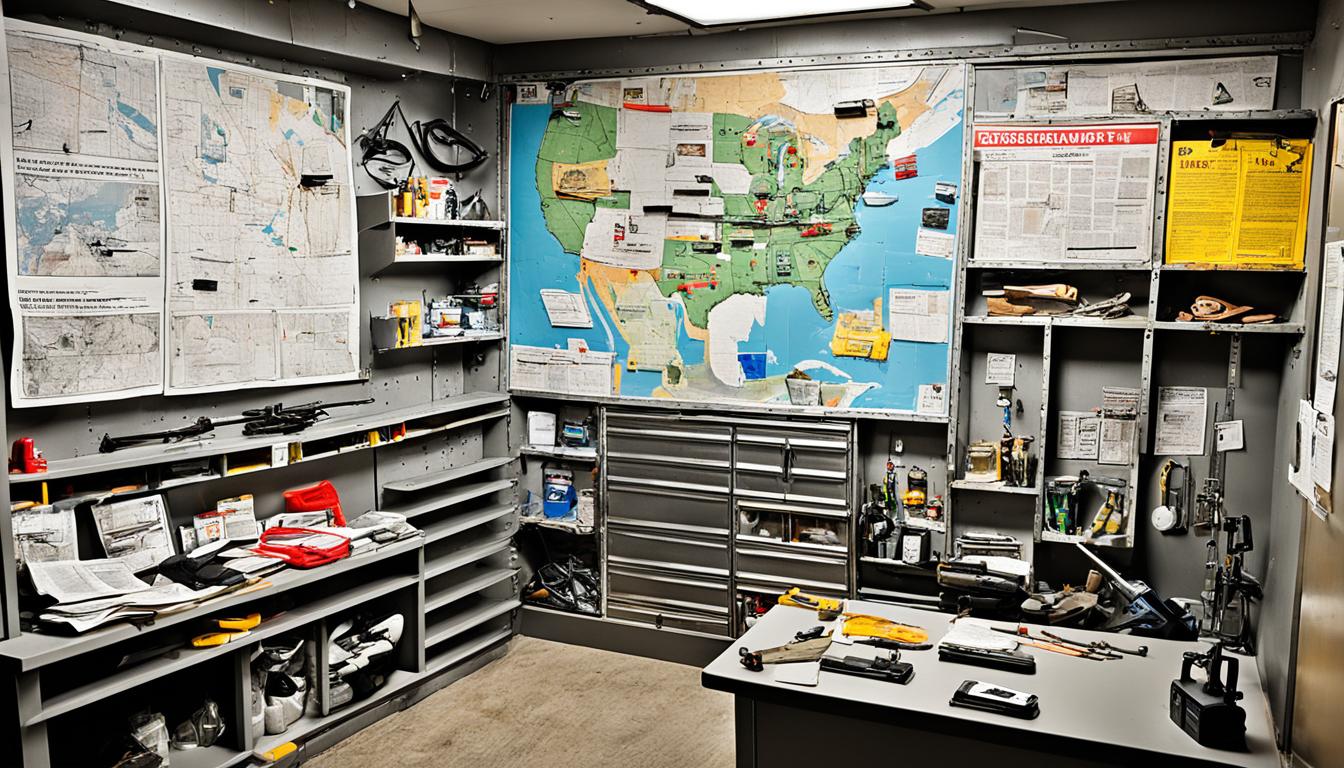As a professional copywriting journalist, I’ve observed that even the most meticulous and self-reliant individuals, often referred to as “preppers,” may face significant challenges when the proverbial “shit hits the fan” (SHTF). While preppers have diligently stockpiled supplies and honed their survival skills, their rigid prepper mentality and unwavering belief in self-sufficiency could ultimately become their downfall. In this article, I’ll delve into the harsh realities of the prepper mindset, the limitations of self-sufficiency, and why a more adaptable and community-oriented survival mindset is essential for thriving in the aftermath of a major crisis.
The Harsh Reality of Prepper Mentality
Preppers often possess an unwavering belief in their ability to survive, coupled with a sense of superiority over those who have not made similar preparations. This prepper mentality can be a double-edged sword, leading to both strengths and weaknesses in the face of a crisis.
Overconfidence and Lack of Adaptability
One of the primary challenges with the prepper mentality is the tendency towards overconfidence. Preppers may become so convinced of their own preparedness that they fail to account for the dynamic and unpredictable nature of a true crisis. This lack of adaptability can leave them ill-equipped to handle the rapid changes and unforeseen circumstances that often arise during a disaster.
Tunnel Vision and Failure to Consider Unforeseen Circumstances
Additionally, preppers can sometimes develop a tunnel vision approach, hyper-focusing on their carefully crafted survival plans while neglecting to consider the multitude of unforeseen circumstances that may arise. This narrow mindset can leave them vulnerable to unexpected challenges, such as supply chain disruptions, infrastructure failures, or social unrest, which could ultimately undermine their chances of survival.
“Preppers must be willing to adapt and evolve their strategies as the situation unfolds, rather than stubbornly clinging to a single plan of action.”
The prepper mentality, while rooted in a desire for self-reliance and preparedness, can paradoxically lead to a false sense of security and a lack of flexibility. To truly thrive in a crisis, preppers must be willing to adapt and evolve their strategies as the situation unfolds, rather than stubbornly clinging to a single plan of action.

Why Preppers Will Die When SHTF
In the face of an impending crisis, many individuals have turned to prepping as a means of ensuring their survival. However, the harsh reality is that the prepper mentality often leads to more harm than good. Preppers’ overconfidence and lack of adaptability, combined with their tunnel vision and failure to consider unforeseen circumstances, make them particularly vulnerable when disaster strikes.
One of the primary reasons why preppers will not survive when the SHTF (Shit Hits The Fan) is their overconfidence and lack of adaptability. Preppers often believe that their stockpile of supplies and their carefully curated survival plans will be enough to see them through any crisis. However, they fail to recognize that the world is a dynamic and unpredictable place, and that their preparations may not always be adequate in the face of unexpected events.
Furthermore, preppers’ tunnel vision and failure to consider unforeseen circumstances can be their downfall. They may focus so intently on specific scenarios, such as a nuclear attack or a global pandemic, that they neglect to plan for other possible threats. This myopic approach leaves them vulnerable to a wide range of unpredictable events that could ultimately lead to their demise.
The Importance of Adaptability and Resourcefulness
Surviving a major crisis requires more than just stockpiling supplies and creating detailed plans. It requires a level of adaptability and resourcefulness that many preppers simply do not possess. Those who are able to think on their feet, improvise, and adjust their strategies as the situation evolves are far more likely to survive when the SHTF.
Additionally, relying solely on one’s own resources and refusing to collaborate with others can be a fatal flaw. Preppers who are unwilling to work with their community or to seek assistance from others may find themselves isolated and vulnerable when they need support the most.
In the end, the prepper mentality, while well-intentioned, is ultimately flawed. By focusing too heavily on their own self-sufficiency and failing to consider the dynamic nature of the world around them, preppers put themselves at greater risk when disaster strikes. The true keys to survival in a crisis lie in adaptability, resourcefulness, and a willingness to work with others, not in the stockpiling of supplies and the creation of rigid plans.
The Limits of Self-Sufficiency
As a seasoned prepper, I’ve come to realize that even our most diligent efforts to be self-sufficient can only take us so far. While stockpiling resources and honing our survival skills are certainly critical, the harsh reality is that we face the unforgiving constraints of finite resources. Our carefully curated supplies and personal expertise, no matter how impressive, will ultimately fall short when faced with the overwhelming challenges that arise in the aftermath of a crisis.
Finite Resources and the Need for Community
At the heart of this realization is the simple truth that we cannot exist in a vacuum. Our ability to thrive, or even survive, is inextricably linked to the communities around us. The resources we’ve painstakingly accumulated can only last for so long, and we will inevitably need to rely on one another to access the essential goods and services required to rebuild and recover. By embracing a more collaborative approach, we can leverage the diverse skills and assets within our communities, ultimately enhancing our collective resilience and increasing our chances of weathering the storm.
As we grapple with the limits of our individual self-sufficiency, it becomes clear that the path forward lies in cultivating strong community ties and fostering a spirit of adaptability. Only by working together, sharing knowledge and resources, and remaining open to new approaches can we truly confront the challenges that await us and emerge stronger on the other side.



